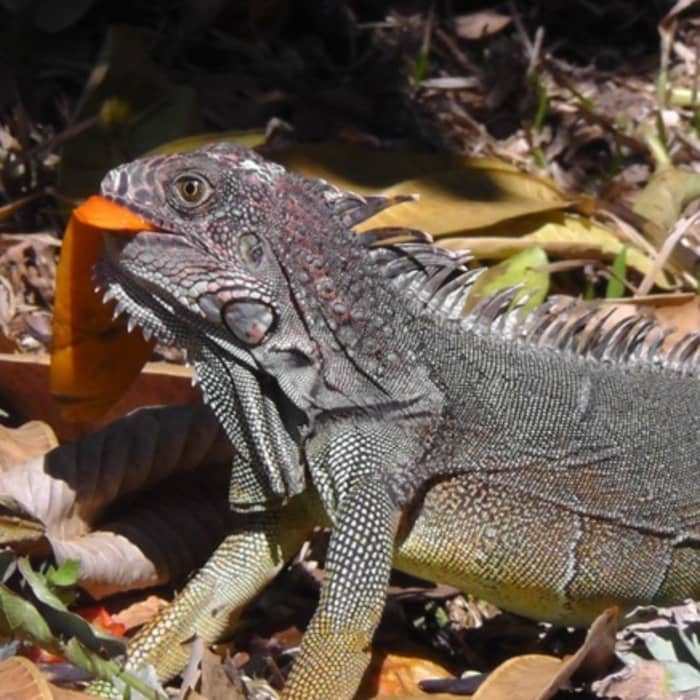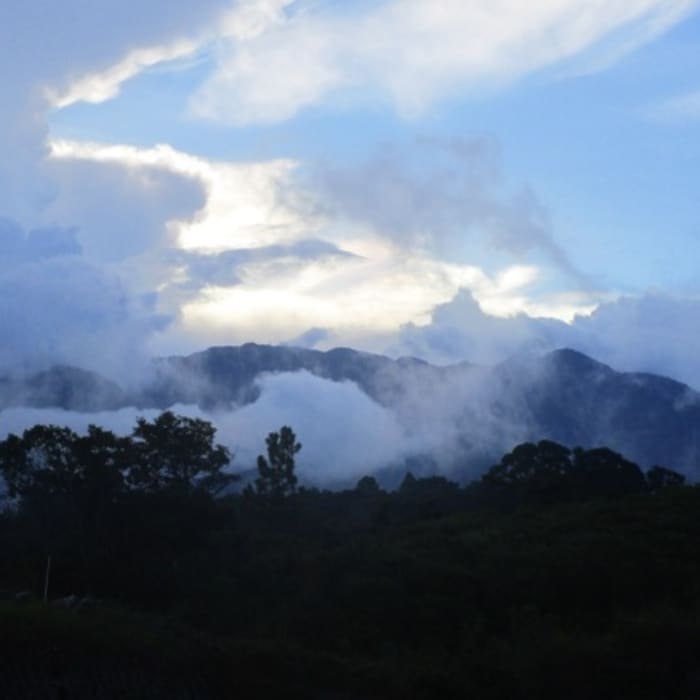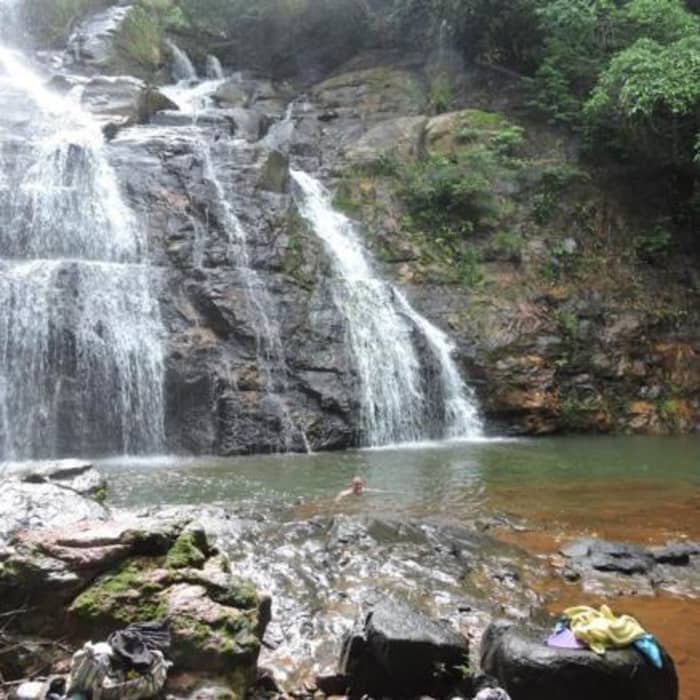Kris Cunningham never expected to be living in Panama. When her husband, Joel, started talking about retiring to Central America, “I thought he had lost his mind.” She didn’t have a passport and had never been abroad.
But after nine years of living in David, a city of 83,000 near the Pacific Ocean and close to the border with Costa Rica, “we are super happy here,” the 69-year-old says. “It’s worked out beyond my wildest expectations.”
She learned Spanish, taught herself to play bass guitar and joined her husband’s rock band, called Monkey Nerve, when the bass player moved to Colombia. She seems to fall into conversation with everyone, has biked from home across Costa Rica and into Nicaragua, and blogs about her life.
Backtrack a decade. Cunningham was working in Florida as a visiting nurse, burned out but knew she and her husband, already retired from his home-remodeling job, couldn’t afford to stay in Sarasota without a paycheck or her Social Security check. And even a reduced check was a few years away.
“We were just working to keep our heads above water” while she counted down the days until she could claim Social Security at 62, she recalled.
At her husband’s urging, they decided to check out Costa Rica and Panama. Costa Rica was pricier. Panama City wasn’t a good fit — too much city. Boquete, in the mountains, is an expat enclave and didn’t appeal. But David felt right — not too large, friendly and foreigners are integrated into the community, rather than living apart. “It just feels so free here, so relaxed, so not alone,” she says.
They ran the numbers and figured they could live off savings until her Social Security check kicked in.
She took Spanish classes before leaving Florida, but her friends in Panama don’t speak English. So she learned, even though it meant relying on a dictionary for the first four years.
The budget
In Florida, the couple was spending $3,000 a month on just the basics, never mind clothes and restaurant meals. In David, it’s between $1,100 and $1,200. Extra costs are minimal; they’re not big restaurant goers, so it’s mainly flights back to the U.S.
They rent a home — 3 bedrooms, 2 baths across 900 square feet plus a yard full of fruit trees — in a nice middle-class neighborhood for $385 a month, water and trash collection included. In Panama, it’s the norm that an unfurnished house means you supply the refrigerator, the stove and the washing machine.

Feeding the wildlife: an iguana claims a papaya peel
Courtesy Kris Cunningham
The kitchen stove runs on a gas canister similar to that for an American gas grill — typical for Panama — and costs $5.12 for a refill, usually needed monthly. Internet and cable television together is $46 a month.
Insurance for their cars — liability coverage only because they are more than a decade old — is nearly $300 a year.
A basic, good Panamanian lunch costs about $4, she says, while the nearby fancy Italian restaurant could be $40 per person. Their favorite restaurant costs no more than $10 apiece. The $45 she recently paid in the U.S. for a meal for four of three hamburgers, chicken nuggets and something to drink would cost half that or less in Panama, she said.
“We’re not living poorly here, We’re living very comfortably.”
Healthcare
Cunningham and her husband have opted to pay for healthcare out of pocket, saying they are healthy and not on any medications, and they set aside money for emergencies.
A doctor’s visit costs $40 to $50, she says, and she pays $30 to get her teeth cleaned.
When a spot on her tooth turned into a big cavity, gum surgery, a root canal and a crown, handled by three dentists, “it ended up being less than $900 for the whole shebang,” she recalled.

The mountains above David.
Courtesy Kris Cunningham
You need a visa to live in Panama
Panama’s rules have changed since Cunningham arrived. While you can stay for 180 days as a tourist, you can’t keep living in the country as a tourist, she says.
Panama does require that individuals can document $1,000 of verifiable income each month plus another $250 for each dependent, she says. That could be a Social Security check or a government or private-sector pension. Here is what the Panamanian embassy lists as requirements.
The visa comes with various discounts for retirees, including for flights.
If the standard retiree visa doesn’t work for you, consult a lawyer about other options. You can also contact the nearest Panamanian consulate with your visa questions.
Advice
Cunningham freely admits there will be frustrations. Workers may not show up when you expect them, and meetings can start late. It will be noisier, too — loud music that goes on late, roosters that crow, dogs running down the street. Depending on where you live, you can be dealing with regular outages of power, internet, even water.
Then there are more mundane differences. Favorite brands may be unavailable. Clothes and shoes that fit can be hard to find because Panamanians tend to be shorter and thinner than Americans.

A swimming hole in Panama
Courtesy Kris Cunningham
The weather in David is hot but, she says, more comfortable than in Florida, which also got cold.
Many Americans opt for mountain living in Boquete, where there’s no shortage of happenings in English and the workers speak English. Still, she’s seen many people come and go. Some leave fed up with what they perceive as inefficiency or bureaucracy, or they miss the grandchildren, or they want U.S. healthcare. (Medicare can’t be used overseas.)
“Sometimes I think they wanted the life they had in the States but cheaper,” she says.
Her advice? Chill. Adapt to the culture, and you’ll do better at getting what you want.
“To make this work, you have to know it’s not going to be the same” as living in the U.S., she adds. “You just have to realize you’re taking a leap of faith into the unknown, and you just have to go with it.”
Interested in Boquete? ‘It is an act of insanity to stay in the U.S.’: Why this 63-year-old teacher ditched Massachusetts to retire in the highlands of Panama
More on retiring abroad
The five most affordable Caribbean Islands to retire to — and two to avoid
Here are the 10 best places in the world to retire
Four critical factors that can determine if retiring abroad is right for you
